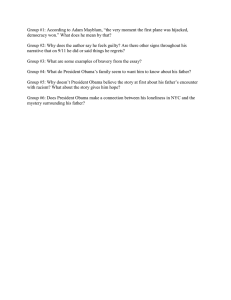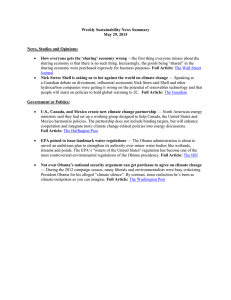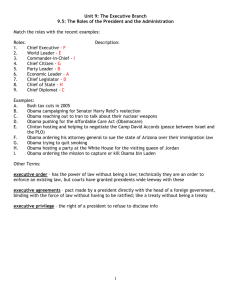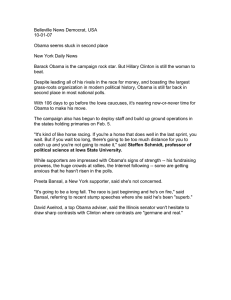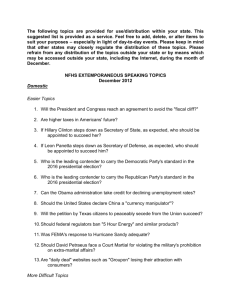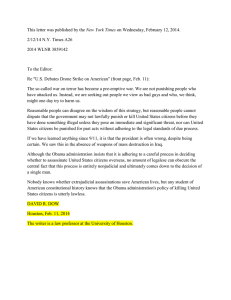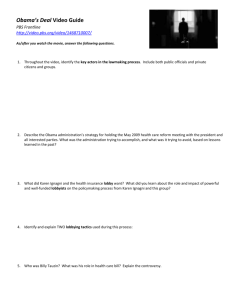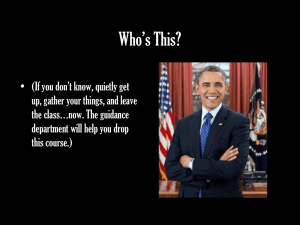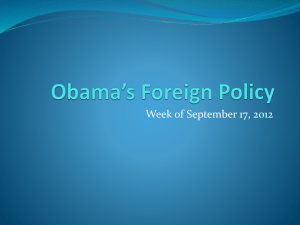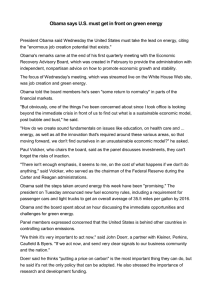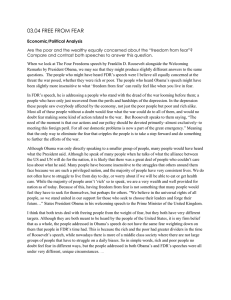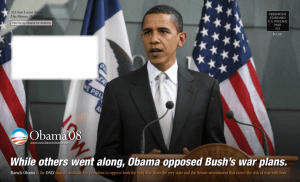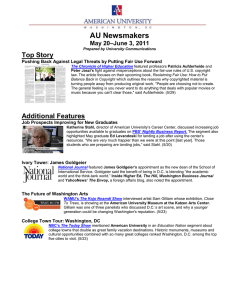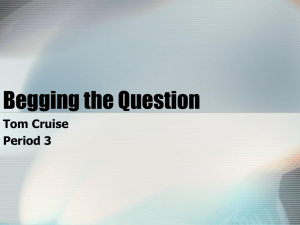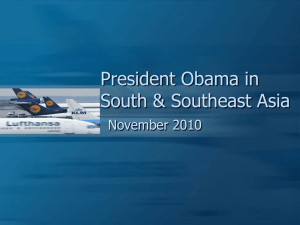- NDC Foundation
advertisement
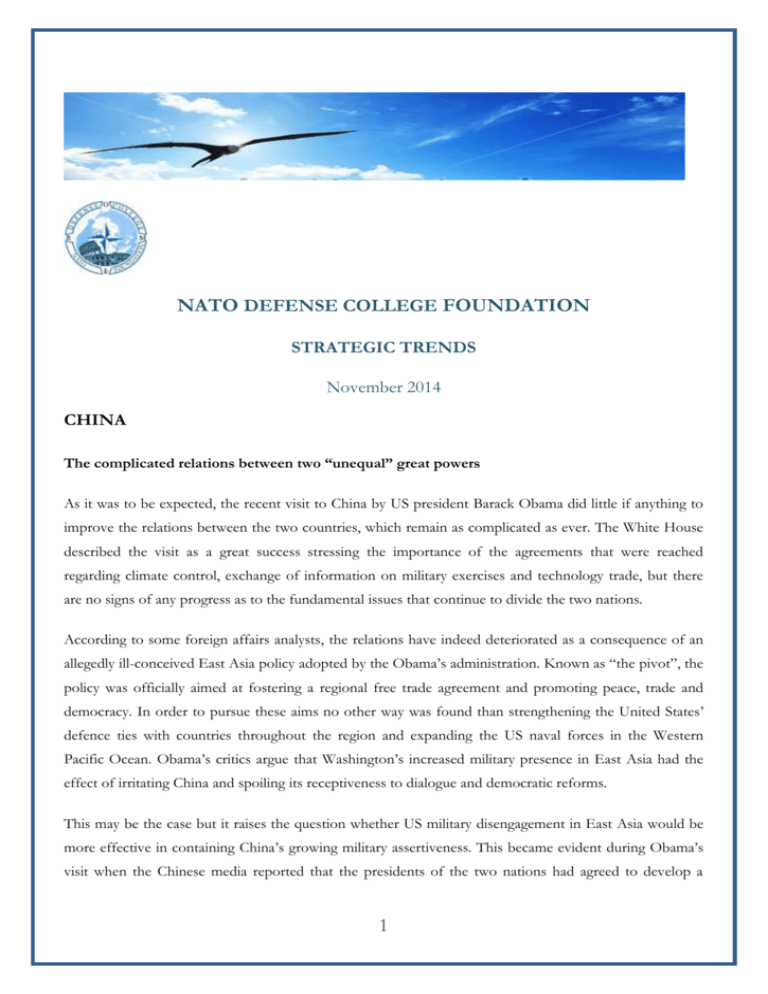
NATO DEFENSE COLLEGE FOUNDATION STRATEGIC TRENDS November 2014 CHINA The complicated relations between two “unequal” great powers As it was to be expected, the recent visit to China by US president Barack Obama did little if anything to improve the relations between the two countries, which remain as complicated as ever. The White House described the visit as a great success stressing the importance of the agreements that were reached regarding climate control, exchange of information on military exercises and technology trade, but there are no signs of any progress as to the fundamental issues that continue to divide the two nations. According to some foreign affairs analysts, the relations have indeed deteriorated as a consequence of an allegedly ill-conceived East Asia policy adopted by the Obama’s administration. Known as “the pivot”, the policy was officially aimed at fostering a regional free trade agreement and promoting peace, trade and democracy. In order to pursue these aims no other way was found than strengthening the United States’ defence ties with countries throughout the region and expanding the US naval forces in the Western Pacific Ocean. Obama’s critics argue that Washington’s increased military presence in East Asia had the effect of irritating China and spoiling its receptiveness to dialogue and democratic reforms. This may be the case but it raises the question whether US military disengagement in East Asia would be more effective in containing China’s growing military assertiveness. This became evident during Obama’s visit when the Chinese media reported that the presidents of the two nations had agreed to develop a 1 “new type of great-power relationship” based on mutual respect and collaboration as equal “great powers”. It was wishful thinking rather than a truthful statement. Respect and collaboration are one thing, equality of status is another, not only because China, both economically and militarily, has still a long way to go before reaching the US level of power, but also on account of its political reality. The US cannot accept being considered equal by a nation with a totalitarian system of government. That phrase has been blacklisted by the American government since it was first uttered by China’s president Xi Jinping during his visit to the US last year and yet Chinese officials insist in using it whenever the opportunity arises in order to have it eventually validated. To bypass the US rejection of the phrase, China has changed the English translation to “a new kind of major power relations” but both the phrase and its meaning have remained the same in Mandarin. Such dispute may look irrelevant, but in Chinese politics words play a crucial role. The fact is that the two countries have always had an ambiguous approach to their relations avoiding to talk too clearly to one another and pretending to be on good terms. Nevertheless, as China expands its influence around the world and the US tries to counter the perceptions of its decline, they are bound to collide on far more issues than they ever have before. 2
